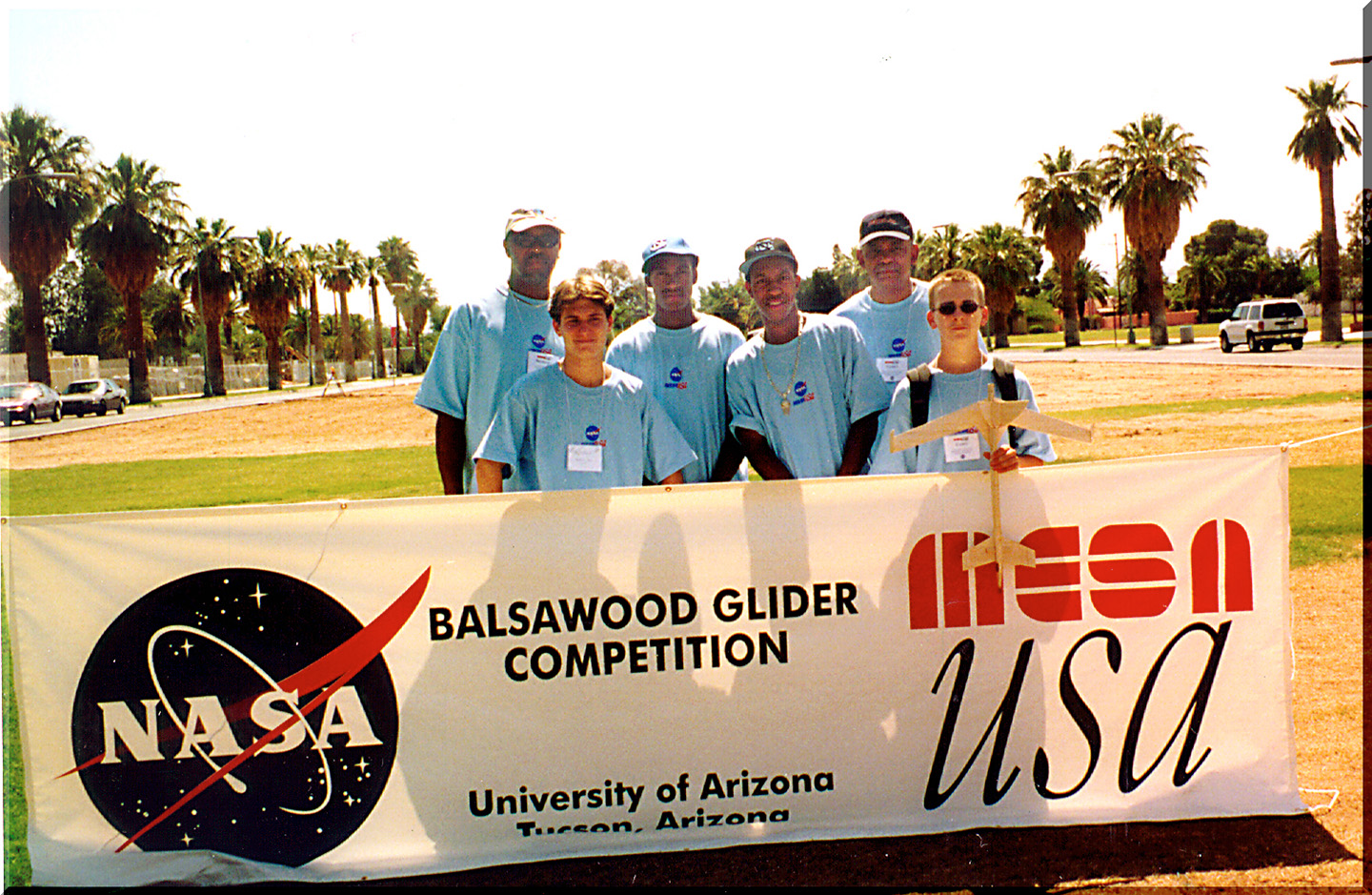Press Release
Maryland MESA Students Take Second Place in National Competition
Thu, 07/25/2002 - 14:47
Maryland MESA (Mathematics, Engineering, Science Achievement) students from Northern High School in Owings, Md., took second place in the second MESA National Engineering Design Competition. Dundalk Middle School, Baltimore, also competed at the June 28-30 event held in Tucson, Ariz.
Students from these two schools qualified for the national competition by placing first in the respective Maryland state MESA Days competitions for middle and high schools held at The Johns Hopkins University Applied Physics Laboratory (APL), Laurel, Md., in the spring.
For this national event, middle and high school students from eight states competed against their respective peers by using their math and science knowledge to design a balsa wood glider that could travel long distances. Student teams were judged on their glider’s flight distance, a technical paper and an oral presentation. Northern students scored 828 out of a possible 1,000 points, while Dundalk scored 561.
During the Academic Bowl segment of the competition, each school was given an identical set of written questions. The Maryland middle and high schools performed best out of the eight states.
Modeled after a California program, Maryland MESA was founded in 1976 by APL, with two schools in Baltimore City. Now in its 26th year of continuous operation, the program involves 123 elementary, middle and high schools statewide. It is designed to motivate students, especially ethnic minorities and females, and enhance their math, science and engineering skills. The Maryland students who competed were accompanied by Maryland MESA Director Robert H. Willis and Deputy Director Norma F. Boyd, both from APL.
“We were thrilled that the Maryland kids repeated their stellar performance from last year in this national event. It’s gratifying to work with such talented, enthusiastic youth,” says Willis. “MESA programs and competitions encourage young people to take challenging courses and provide real-life experiences that expand the students’ potential,” says Willis.
Maryland MESA is supported by universities, industries, civic and educational organizations and is administered through a partnership of Maryland school systems, local colleges and universities, business and industry, government agencies, community organizations, parents and alumni. For more information visit http://www.jhuapl.edu/mesa/content.htm.
